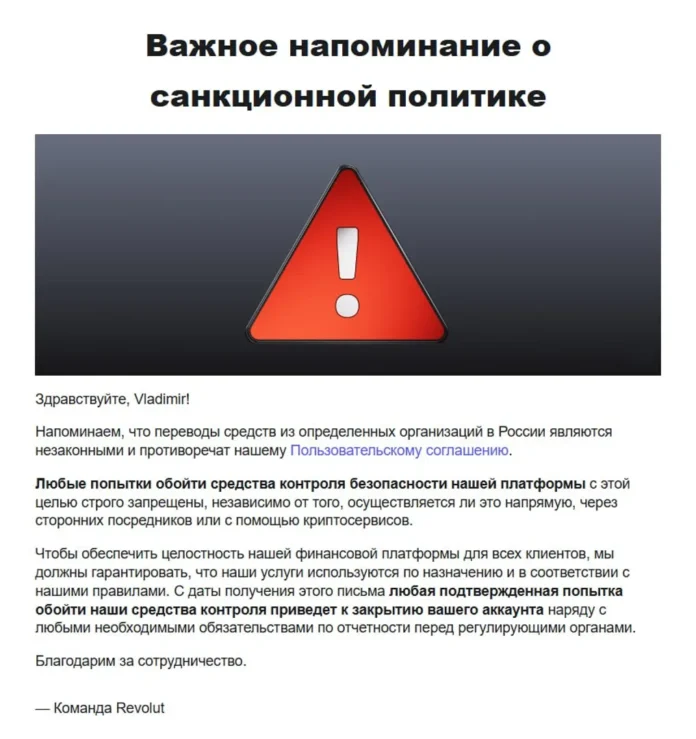Following an investigation by The Bell, the European digital bank Revolut has started sending warnings to users with ties to Russia—emphasizing that transfers from sanctioned Russian entities are strictly prohibited. Any confirmed attempt to bypass these controls may result in account suspension and compliance reporting to regulators (SOTA).
The Catalyst
The move appears to be a reaction to a June 27 article by The Bell, which exposed how Sberbank had developed a workaround to SWIFT restrictions. It enabled ruble-to-euro transfers to European neobanks like Revolut and N26 via just a card number—with unusually favorable conversion rates (e.g., 3,000 ₽ → €30 for roughly 100 ₽ per €1, notably higher than the official 91 ₽ rate) (The Bell).
User Reaction & Legal Implications
Despite users reporting that they never interacted with sanctioned organizations, they still received warnings—indicating a zero-tolerance stance by Revolut. Additionally, journalist Nikita Mogutin in France, via Telegram, cautioned that repetitive international transfers from Sberbank could attract scrutiny from Russian tax and financial authorities. Notably, while Russian citizens must declare foreign accounts, authorities currently lack mechanisms to identify or penalize them effectively (SOTA).
Founders’ Connection
It’s worth noting that Revolut was co-founded by Russians Nikolay Storonsky and Vlad Yatsenko, with Storonsky renouncing his Russian citizenship in 2022 and also holding British nationality. His father, sharing the same name, heads “Gazprom Promgaz” JSC—underscoring the nuanced personal backgrounds behind this fintech giant (SOTA).
Why It Matters
This incident spotlights how geopolitical shifts and sanctions risk are reshaping compliance in fintech. Even without direct wrongdoing, being flagged through association—or media coverage—can trigger swift protections. For digital banks operating across borders, maintaining robust, transparent controls—and communicating them clearly—is now mandatory, not optional.




